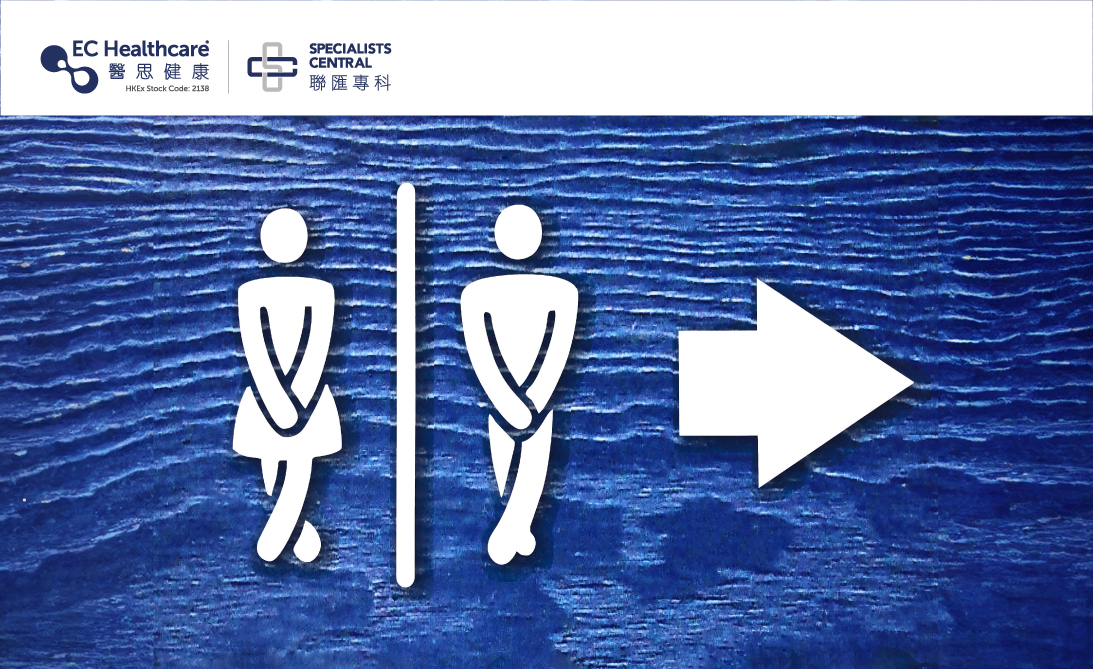Trouble Urinating? Experiencing Nocturia?


Your body relies on urination to eliminate waste and regulate fluid balance. However, many individuals aged 45 and above face challenges like frequent urination, nighttime trips to the bathroom, weak flow, and difficulty in passing urine clearly. These urinary issues can be uncomfortable to talk about, and the fear of embarrassment often prevents people from seeking medical help. In fact, this is a problem that both men and women may face, and it's important to address it early on to prevent the condition from worsening and potentially leading to serious complications such as incontinence, bladder stones, or kidney failure.

6 Common Symptoms of Urinary Difficulty
1. Urgency and Frequency: Experiencing the need to urinate frequently within a short period of time. The average person typically urinates around 5 to 7 times a day, but individuals with frequency issues may urinate more than 8 times or even more. During sleep, the urge to urinate can disrupt sleep and require waking up to use the bathroom, leading to an increase in nocturia (nighttime urination).
2. Urinary Hesitancy: It takes at least 20 seconds or more to start urinating during each bathroom visit, requiring abdominal straining or assuming specific positions to initiate urination.
3. Weak/Slow Urination: The flow of urine becomes slow, with men experiencing a weak stream or a sprinkler-like pattern of urination, or even dribbling.
4. Intermittent Urination: Urination occurs in a start-stop pattern, requiring multiple attempts to completely empty the bladder.
5. Urinary Pain/Burning Sensation: Experience a burning or painful sensation in the urethra during urination.
6. Unclear Urination: Feeling of bladder fullness or pressure even after completing urination.
Urinary Difficulty: Gender Differences
Both men and women can experience urinary difficulties, but the underlying causes vary significantly. For most men, urinary difficulties are often related to the prostate gland. Conditions such as prostate enlargement or prostatitis can exert pressure on the urethra, impeding the flow of urine. Urinary difficulties can arise from various factors such as urinary tract infections, injuries, surgical procedures leading to urethral strictures, urinary stones, neurogenic bladder, bladder muscle dysfunction, or spinal cord injuries. These conditions can obstruct the flow of urine or disrupt the normal contraction and relaxation of the bladder muscles, resulting in difficulty with urination. As for the causes of urinary difficulties in women, they are often related to blockage at the bladder outlet or abnormalities in the pelvic floor muscles. These may include factors such as prolonged periods of sitting and holding urine, prolonged tension in the pelvic floor muscles, overactive bladder, bladder dysfunction, urinary tract or bladder infections, kidney or bladder stones, and uterine prolapse. Additionally, some individuals may experience psychological frequency of urination due to stress, anxiety, or fear.
Neglecting the Issue can Lead to Serious Complications
Mild to moderate urinary difficulties can have negative impacts on various aspects of a patient's life, including their physical well-being, mental health, and social interactions. Constant thoughts about finding a restroom may lead individuals to avoid traveling or taking long car rides. They may constantly scan their surroundings for nearby restrooms while being mindful of the need to interrupt gatherings or activities to address their urinary needs. These circumstances can inadvertently cause psychological stress. Additionally, if nocturia becomes a concern, it can disrupt sleep quality, leaving individuals feeling fatigued and affecting their daily routines.
If urinary difficulties progress to a severe stage, patients may experience urinary retention, uremia, urinary tract infections, bladder stones, kidney failure, and even incontinence. Therefore, when experiencing symptoms of urinary difficulty, it is important to seek medical attention promptly. A healthcare professional can provide a proper diagnosis and recommend suitable treatment methods. Additionally, incorporating regular exercise, stress reduction techniques, and reducing diuretic intake into one's lifestyle can help improve urinary difficulties such as hesitancy and nocturia.
Related Brands







